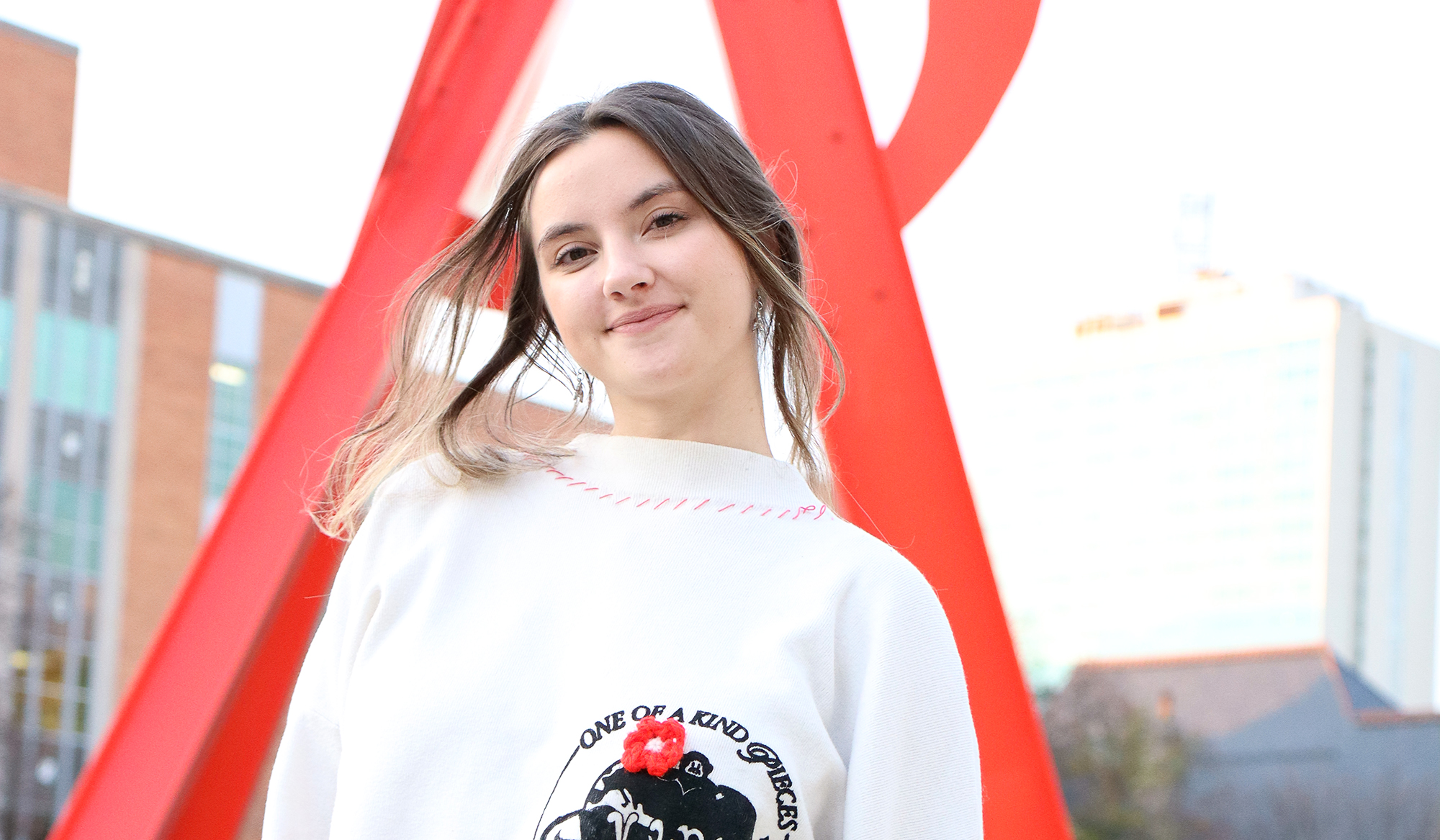Summer Reading List
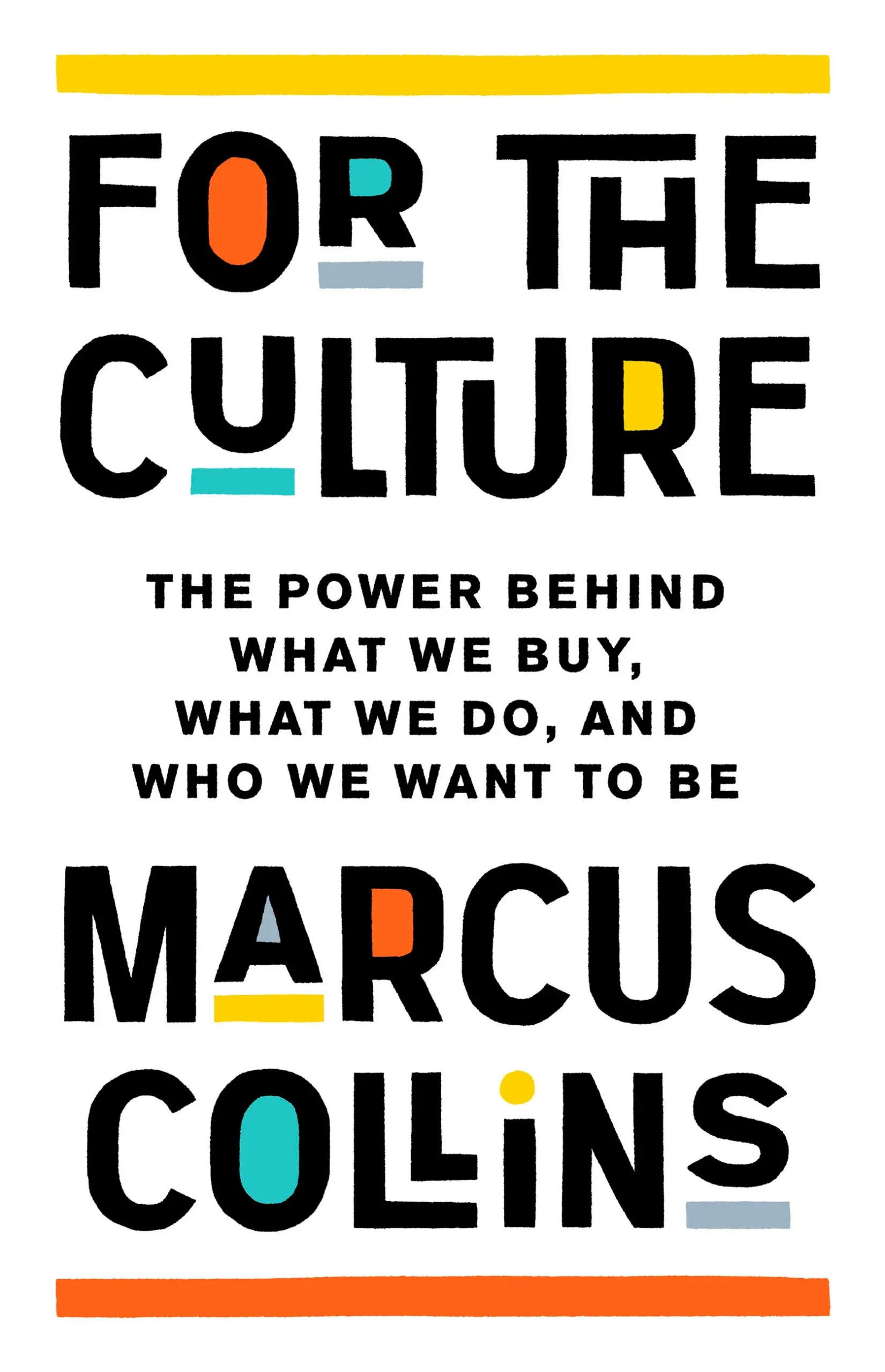 FOR THE CULTURE: THE POWER BEHIND WHAT WE BUY, WHAT WE DO, AND WHO WE WANT TO BE
FOR THE CULTURE: THE POWER BEHIND WHAT WE BUY, WHAT WE DO, AND WHO WE WANT TO BE
By Marcus Collins, ’02, MBA’09
PublicAffairs, 2023
At first blush, it appears that Marcus Collins’ book “For the Culture” could be a marketing textbook. That would make sense as Collins is a clinical assistant professor of marketing at the Ross School of Business. And while the book provides a 400-level insight into how great marketing campaigns tap into modern culture (and terrible marketing campaigns fall short), the book is really a study of how to get people to act.
Collins uses his experiences as head of planning at ad agency Wieden+Kennedy New York and other real-world examples to show how brands and activists can “preach to the congregation.” That is, companies are more successful when they focus on understanding the people that love their brands than when they are more concerned with selling.
Of the many examples, Collins dissects outdoor retailer REI’s #OptOutside campaign which eschewed traditional Black Friday sales. The end result: intense social engagement, other brands following suit, and, perhaps surprisingly, higher overall sales despite the store being completely closed on the biggest shopping day of the year. Consumers, Collins argues, will trust a brand that stands for the same things they believe in. They become part of the “tribe.”
Yes, you can get a semester’s worth of marketing education in “For the Culture,” but you’ll also get a better understanding of how to influence people to take the action you want.
— JEREMY CARROLL
 THE ONE
THE ONE
By Julia Argy, MFA’21
G.P. Putnam Sons, 2023
20-something Emily Boylan is recently laid off when she gets recruited to be on a reality TV show called “The One,” a series similar to “The Bachelor.” She decides to join on a whim having never seen the show and with almost no knowledge about the world she is about to walk into.
Though Emily is far from the typical contestant on the show, it soon becomes clear she’s being set up to win. As the weeks of the six-week series pass, Emily — a woman who is directionless when we meet her, without a real vision for her own life — is forced to make a choice about what she really wants from love and life even when it requires rejecting what’s expected of her.
Argy’s novel takes the reader behind the scenes of a reality TV show set, a place where emotions and intimacy are constantly performed, engineered, and mediated through an audience. Emily is always performing, even when she’s not specifically being asked to. While the novel’s setting is specific, its themes apply more broadly to social media, influencer culture, and life lived on the internet in constant view of and observation of others.
In an environment that appears to collapse the boundaries between love, attention and fame, and the private and public, Argy raises important questions about authentic desire as the reality TV show becomes a metaphor for living with an ever-present audience in this compelling debut.
— LEERON HOORY
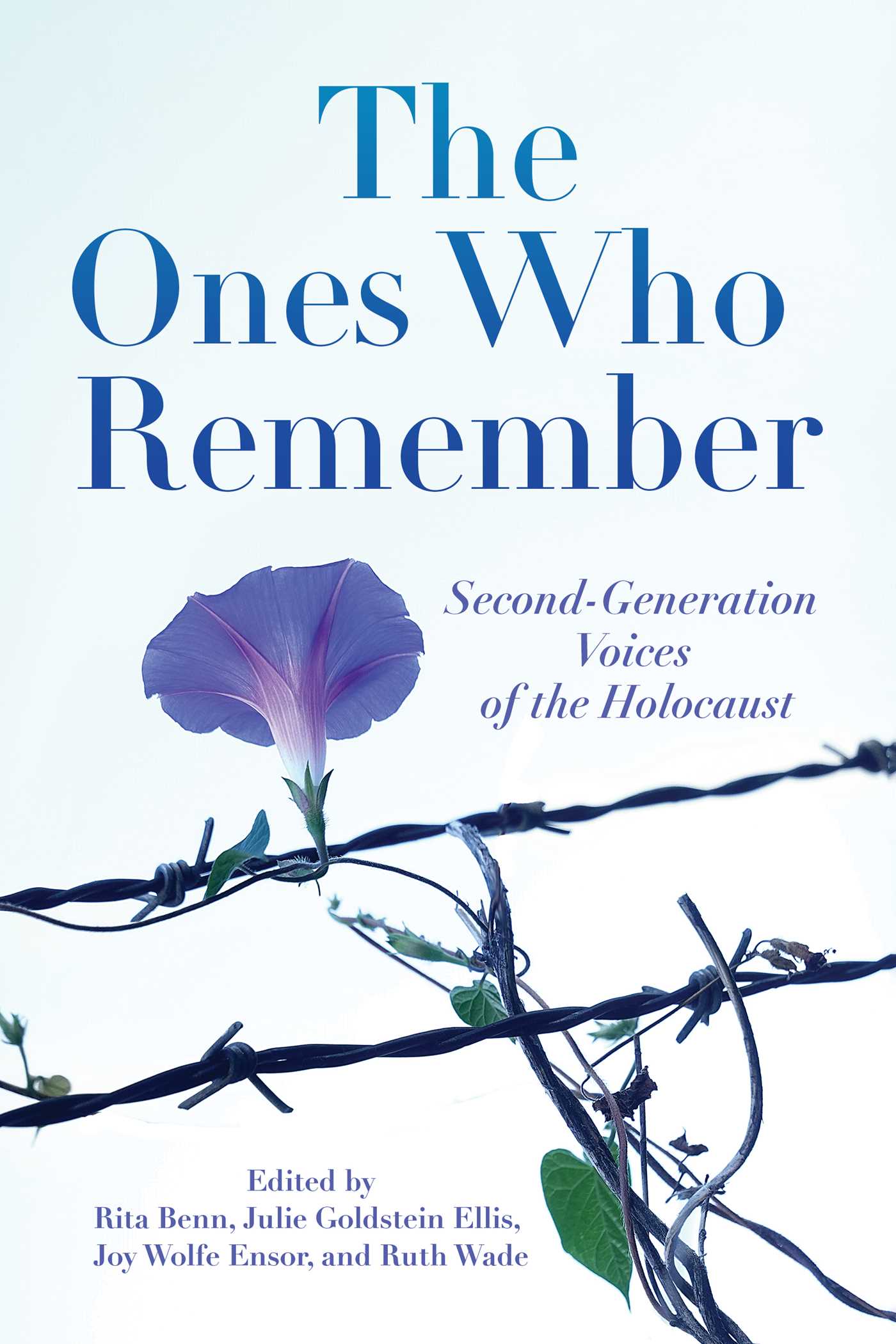 THE ONES WHO REMEMBER: SECOND-GENERATION VOICES OF THE HOLOCAUST
THE ONES WHO REMEMBER: SECOND-GENERATION VOICES OF THE HOLOCAUST
Edited by Rita Benn, PhD’81, Julie Goldstein Ellis, ’74, Joy Wolfe Ensor, MA’75, PhD’83, and Ruth Finkel Wade
City Point Press, 2022
For many, the Holocaust is a tragedy learned about in school, nestled between lesson plans about the Great Depression and the Vietnam War. It’s horrific, but mightily far off, separated from our own lives by continents and generations, with most of the survivors having passed away and the more gruesome details softened by the nearly 90 years since.
“The Ones Who Remember” is a stark reminder that these atrocities aren’t so distant and tragedy doesn’t stop radiating just because the violent acts have physically ceased.
This book is a collection of 16 chapter-length memoir accounts (nine of which come from U-M alums) of families “grappling with the legacy of genocide,” written by the children of Holocaust survivors who found each other in the Generations After support group of Temple Beth Emeth in Ann Arbor.
This legacy is one that is sometimes joyful, as families celebrate the ways their Jewish culture has survived, but one often marred by inherited grief that creeps into daily life.
One of the most recurring examples is self-gaslighting as the second generation perpetually belittles some of their most challenging personal experiences by comparing them to the Holocaust.
Even in its brightest, most hopeful moments, “The Ones Who Remember” is not a light read. But it’s one that helps us better understand intergenerational trauma, the power of storytelling, the true meaning of resilience, and how to be a better ally, friend, and community member to those who carry a nearly unbearable weight.
— KATHERINE FIORILLO
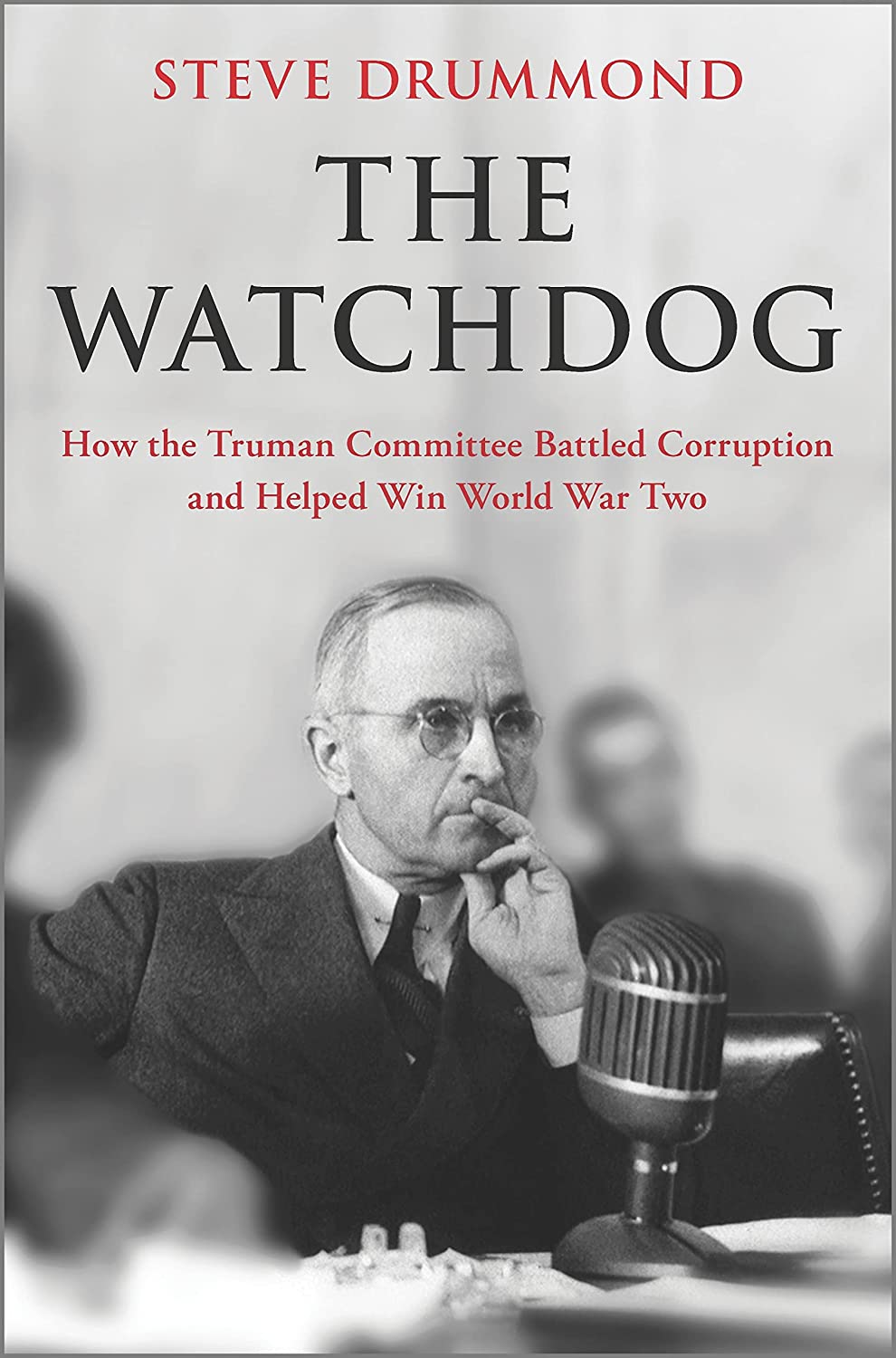 THE WATCHDOG
THE WATCHDOG
By Steve Drummond, ’83, MA’87, MA’93
Hanover Square Press, 2023
It’s a compliment to Steve Drummond that “The Watchdog” takes all the drama out of Harry S. Truman’s ascent to the White House. Not because the book is boring — though in lesser hands it could have been, focused as it is on a Senate committee. But as Drummond details Sen. Truman’s ascent as committee chairman, “President Truman” seems inevitable.
What became known as “the Truman Committee” began as an afterthought in 1941 as the Senate Special Committee to Investigate the National Defense Program. Charged with monitoring government spending on World War II, it investigated ships, airplanes, propaganda films, and more. Initially deemed a nuisance by the military, it ultimately saved billions of dollars, and untold lives that would have otherwise been lost to lesser materiel. It was “the most powerful and feared congressional investigating arm the country had ever seen,” and Truman went from “a reliable but unremarkable foot soldier for the New Deal” to a fixture in the national press (“Billion-Dollar Watchdog” was the title TIME gave the committee).
Truman embraced the work, though he despaired how the long hours and frequent travel separated him from his beloved wife Bess and daughter Margie. Drummond pulls from the committee’s 400 feet of shelf space in the National Archives and the Trumans’ own letters, among other sources, to paint a portrait of the senator in full as the likeliest unlikely political star: humble, hardworking, and a bit uncomfortable in the spotlight. In other words, the perfect VP.
— MATTHEW BENZ, ’98
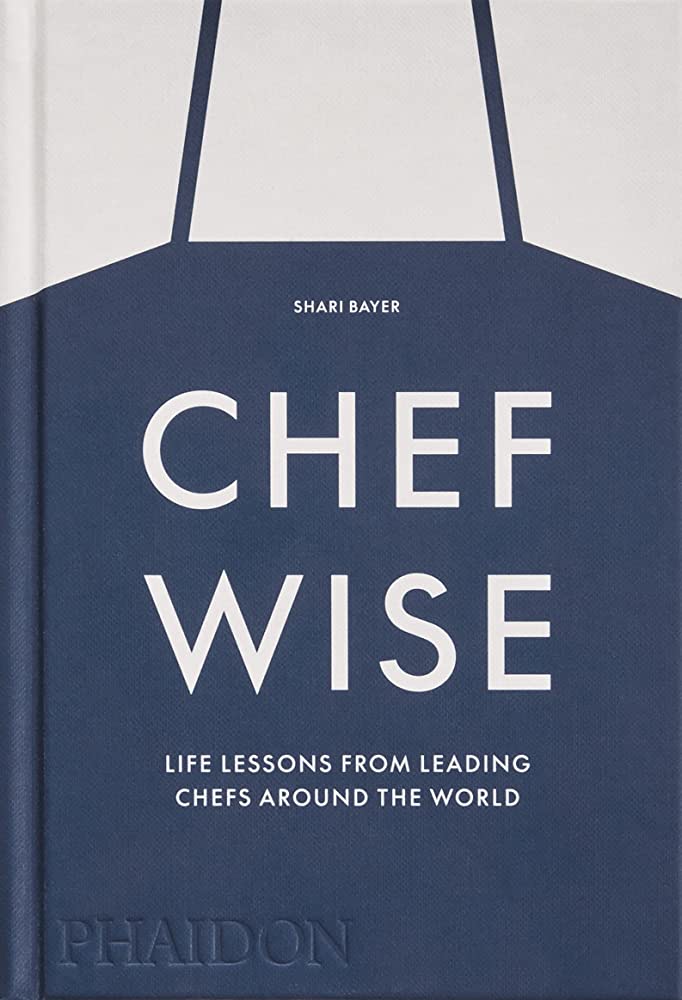 CHEFWISE: LIFE LESSONS FROM LEADING CHEFS AROUND THE WORLD
CHEFWISE: LIFE LESSONS FROM LEADING CHEFS AROUND THE WORLD
By Shari Bayer, ’95
Phaidon Press, 2023
“Chefwise” sources culinary business insights, personal anecdotes on success and failure, and hard-won advice on subjects ranging from community to communications from a roster of 117 top chefs, many of whom 30-year hospitality veteran Shari Bayer met in person on her globetrotting, solo dining restaurant adventures.
Several of the book’s quotes echo the sentiment behind Bayer’s weekly PR tips on her podcast, “All In the Industry.” The advice is as much a life lesson as it is industry insight, whether the chapter covers philosophy, activism, cooking, or identity.
To work in hospitality is to serve others, but as the industry strives to become more equitable and sustainable, chefs address work-life balance, particularly working mothers like Katie Button, of Cúrate in Asheville, North Carolina, who offers her advice to “ask for what you need.” And fellow alum Stephanie Izard,’98, who owns restaurants in Chicago and Los Angeles, touts a healthy mind and family-first mantra — a refreshing stance given the industry’s high burnout rates.
The diversity of voices in “Chefwise” reflect a nuanced behind-the-scenes look at what it really takes to run a restaurant and to operate at the top of one’s game, both in and out of the kitchen. Perhaps the most enduring piece of advice for food lovers comes from Oldřich Sahajdák of Michelin-starred La Degustation Bohême Bourgeoise in Prague: “Find inspiration in life itself. Eat as much as you can, everywhere.”
— LAYLA KHOURY-HANOLD
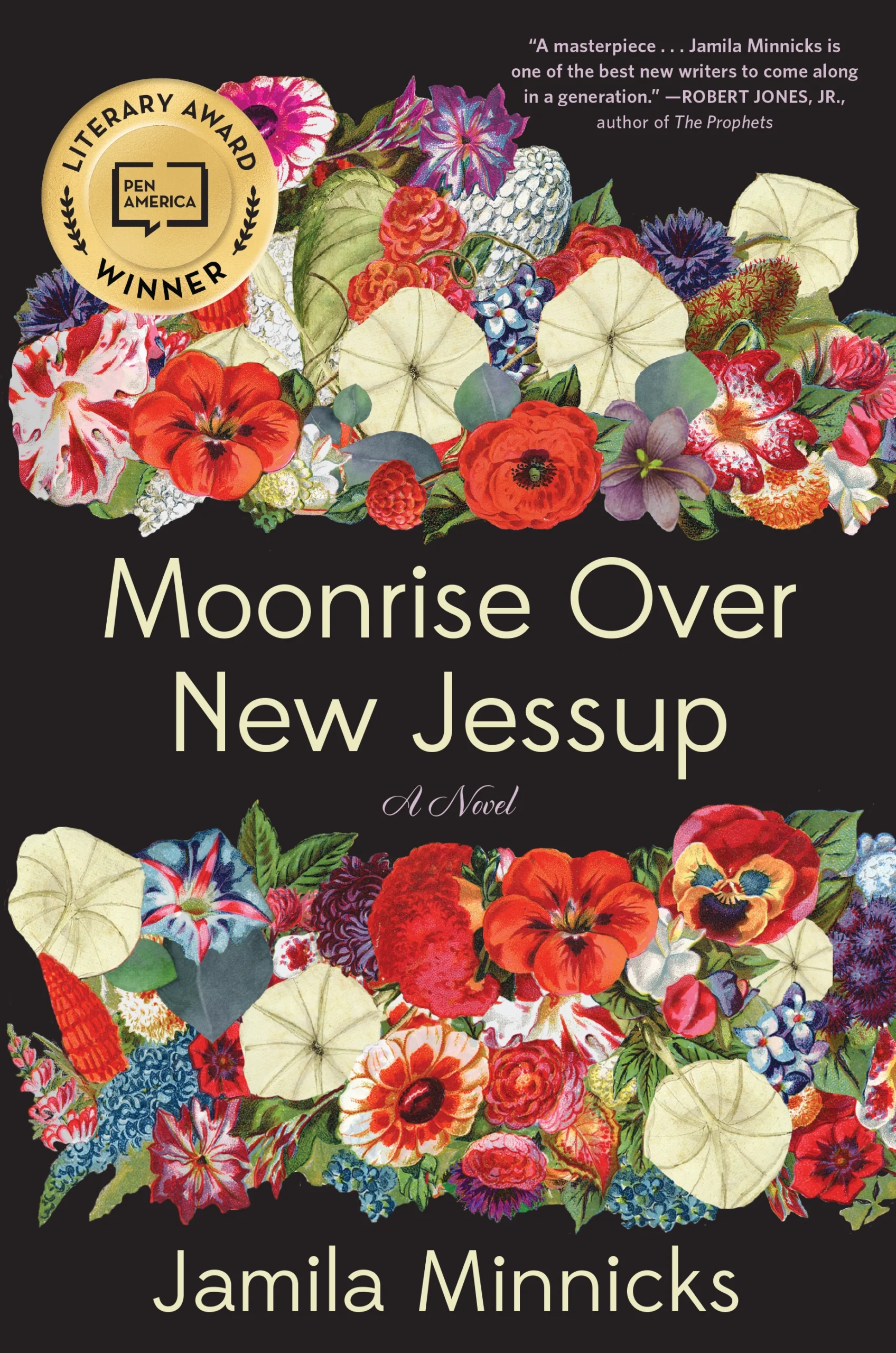 MOONRISE OVER NEW JESSUP
MOONRISE OVER NEW JESSUP
By Jamila Minnicks, ’99
Algonquin Books, 2023
In Jamila Minnicks’ vividly descriptive novel, Alice Young accidentally finds herself in New Jessup in the late 1950s, where she first realizes something is different by the lack of “white” and “colored” entrances, which she was used to seeing in other parts of Alabama.
New Jessup is an all-Black town, with Black residents owning the banks, schools, a hospital, and (most importantly for Alice) dressmaking establishments. She lands a job as a seamstress and subsequently meets the man she will marry.
New Jessup, Alabama, is a mythical place with roots in reality: in 1887, Black residents founded Eatonville, Florida, the first U.S. town incorporated by formerly enslaved people. Michiganians may be more familiar with Idlewild, one of the few places Black people were allowed to vacation and own property before the 1964 Civil Rights Act passed.
As Alice learns, there was originally one Jessup, but white residents drove out Black residents, forcing them into a swamp. New Jessup’s founders doggedly cleared the land, and built a place akin to Xanadu compared with the turbulence Black people faced elsewhere. But the idyll is threatened by the brewing civil rights movement, which ultimately divides Alice, her husband’s family, and the townspeople.
In her skillful writing and descriptive characters, Minnicks shows the personal and political quandaries faced by a town left wondering if its residents join outsiders’ push for integration and full legal rights or if it’s better for New Jessup to exist as a segregated island of safety.
— MICHELINE MAYNARD
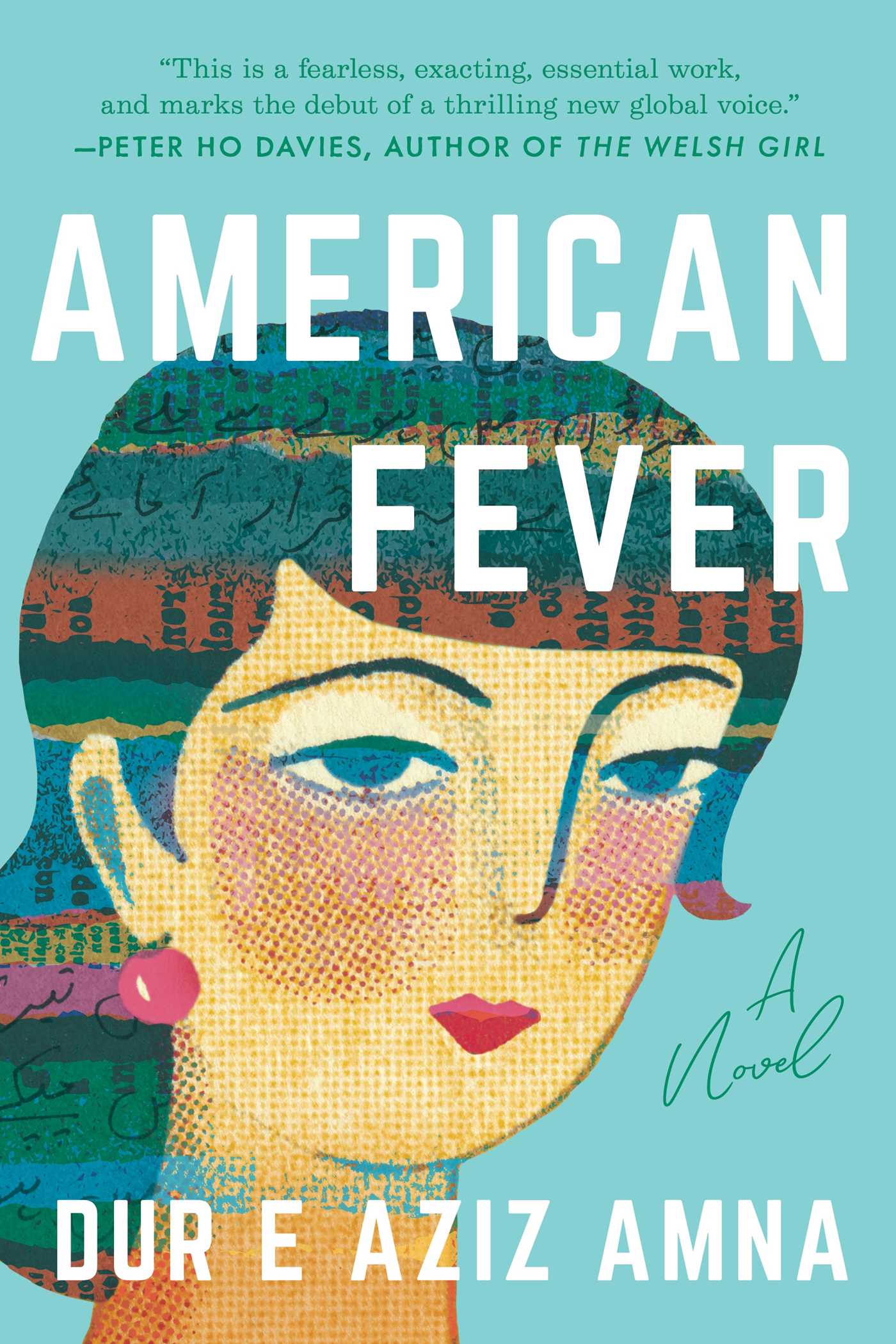 AMERICAN FEVER
AMERICAN FEVER
By Dur e Aziz Amna, MFA’21
Arcade, 2022
Dur e Aziz Amna writes with great subtlety and nuance; her debut novel is by turns witty and lyrical, sharply observed and deeply felt.
Hira, the teenage protagonist, makes for a tremendous narrator: she’s a strong-headed, willful Pakistani girl studying abroad in a small Oregon town. All her opinions are her own.
“The place I was from would stick with pungency to the rest of my days,” Hira says, “like the ghost of the beloved, like a too-late diagnosis of a terrible illness.”
Hira is young but not entirely naïve: she has grown up devouring newspapers, and her view of the United States is far from rose-tinted, even before she arrives. In Oregon, Hira is placed with Kelly, a single mother, and her bland, prom-queen-aspiring daughter, Amy.
Despite it all — the culture shock, the general newness — Hira quickly finds herself bored. She’s Muslim but joins Kelly’s weekly church visits simply for something to do. Then Hira contracts tuberculosis, and her isolation only deepens.
There is so much to admire in this novel: the clarity and poise of Amna’s prose; the humor, which never devolves into easy slapstick; the resistance to stereotype both American and Pakistani culture; and, behind it all, Hira herself — a bold, brave girl with her own ideas, errors, and painstaking way of making a life for herself.
— NATALIA HOLTZMAN, MS’19

